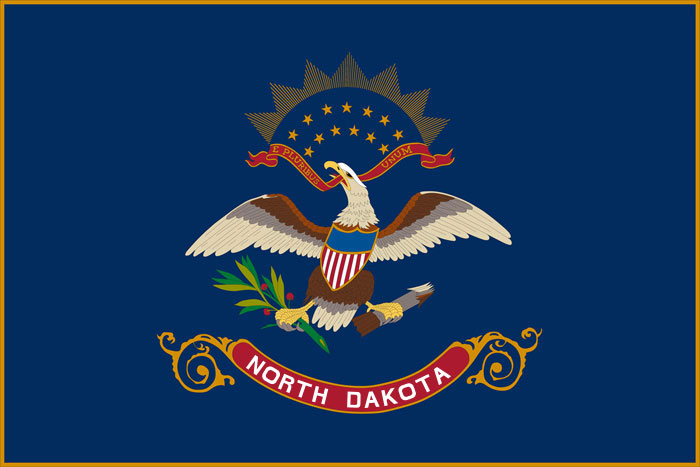Paying for education beyond high school is an investment. Whether choosing a certificate program, technical school, college or university, research the costs and salary you can earn to help reduce financial stress in the future. At Bank of North Dakota, we want you to Be Confident with your decisions and we are here to help with that.
Your career choice impacts your time in college and future finances
Understand that your college and career choices, along with taking out student loans, may impact your finances in the future. Different colleges offer different programs and opportunities. Your career choice and the education you need to achieve it impact the length of time you may spend in college.
ND Job Service’s Labor Market Information and InsightsND.nd.gov are two resources available to help you research careers, education needed and anticipated salaries. If you’re unsure where to start with researching careers, RUReady.ND.gov may help you.
While you research your options, consider the type of lifestyle you want when choosing a career. If you have expensive hobbies or feel that having expensive things around you is important, you’ll need to choose a career where you can make more money. More years in college doesn’t necessarily mean more money, so consider all of your options when making a decision.
Costs of college
After you determine your career choice, it’s time to research colleges that offer the education you need to achieve it. Take into consideration the annual cost of tuition and fees, meals and living expenses, and then multiply that by the number of years it will take you to achieve your degree or certificate to estimate the total cost of your education.
BND’s Regional College Cost Sheet provides estimated annual costs of colleges in North Dakota, South Dakota, Minnesota and Montana. Click here to download a PDF copy of the Regional College Cost Sheet or use the accordions below.
How much is too much student loan debt?
Now that you know what career you’re interested in and have an estimate of the cost to achieve your education. Click here to use BND’s Salary-to-Debt Calculator to learn how much is too much in student loan debt.
If you want to learn more about managing money, the state of North Dakota provides an excellent resource at no charge: SmartWithMyMoney.nd.gov.
Strategize to reduce your college expenses
When deciding on a career and how you will fund any training or educational needs to achieve it, you need an understanding of finances to Be Confident. At its most basic level, this is what it means to manage your money: Don’t spend more money than you have.
While that sounds simple enough, there are many choices you make that impact your financial security. Everyone is different. Some have more money available to them than others. Some spend more than others, and some save more than others. It’s up to you to educate yourself on the types of expenses you need, credit cards, taking out loans and investing for your future. Set your priorities and do what you can to reach your financial goal. You probably don’t want to work forever!
Consider this list for ways to cut your college costs
Location selection
Can you attend school in a location where you can live with family and decrease expenses?
Save, save and save some more
Set your budget and prioritize saving. The more you can save toward college, the less you may have to take out in student loans. North Dakota’s College SAVE 529 Plan is one of the best ways to save for college with tax benefits and match programs for qualifying families.
Apply for scholarships – lots of them
Scholarships are free money! Apply early and often starting your junior year of high school throughout college. North Dakota Dollars for Scholars has statewide opportunities available to high school seniors and returning college students. Click here to learn more about scholarships and tips for applying.
Research available programs
Some colleges may have programs that you could qualify for to reduce your expenses. For example, the North Dakota University System participates in tuition reciprocity and exchange programs. Click here to learn more about these programs.
Step into a career choice
Consider getting a certificate or an apprenticeship and start making money in a job similar to the one you are trying to get. You will likely incur fewer expenses in tuition and fees, but you earn more. Save those funds to continue your education in a year or two. Sometimes employers have education benefits to assist with continuing education expenses.
Delay the start time of your education
You may choose to work for one to two years and save before entering school. This could be especially helpful if you’re unsure of what career and major you may be interested in.
Cut expenses while in school
Carefully choosing your living situation, renting books instead of buying them, and taking as many classes as possible each semester can help cut college costs.
Compare student loan options
If savings, grants and scholarships don’t cover your costs, BND recommends you take federal Direct Subsidized and Unsubsidized Student Loans before any others. They offer more benefits and repayment options. If those aren’t enough to cover your costs, compare other student loan programs. When doing so, look at the interest rates, annual percentage rates and repayment terms and options. Consider BND’s student loan program as you compare. It provides funds for residents of North Dakota attending an eligible in-state or out-of-state school and out-of-state residents attending an eligible North Dakota school. Click here to learn more about BND’s DEAL Student Loan.
Make payments toward your student loan balances
Have student loans? Consider signing up for monthly or quarterly automatic payments while you are in college, or make periodic payments as you are able. Even if the payments are small, you may be able to reduce the total amount that you will need to pay over the life of the loan.
Live more frugally upon graduation
The recommendation of your student loan monthly payment being 8% or less than your gross earnings is based on what most people can comfortably afford after graduation. There are many ways to live on less money, and you may need to do that if you take out too much in student loans.
Call Us
(833) 397-0311
Email Us
studentloans@nd.gov
Start A Live Chat
When active, connect by using the icon in the lower right corner to connect.
 An official website of the State of North Dakota
An official website of the State of North Dakota
